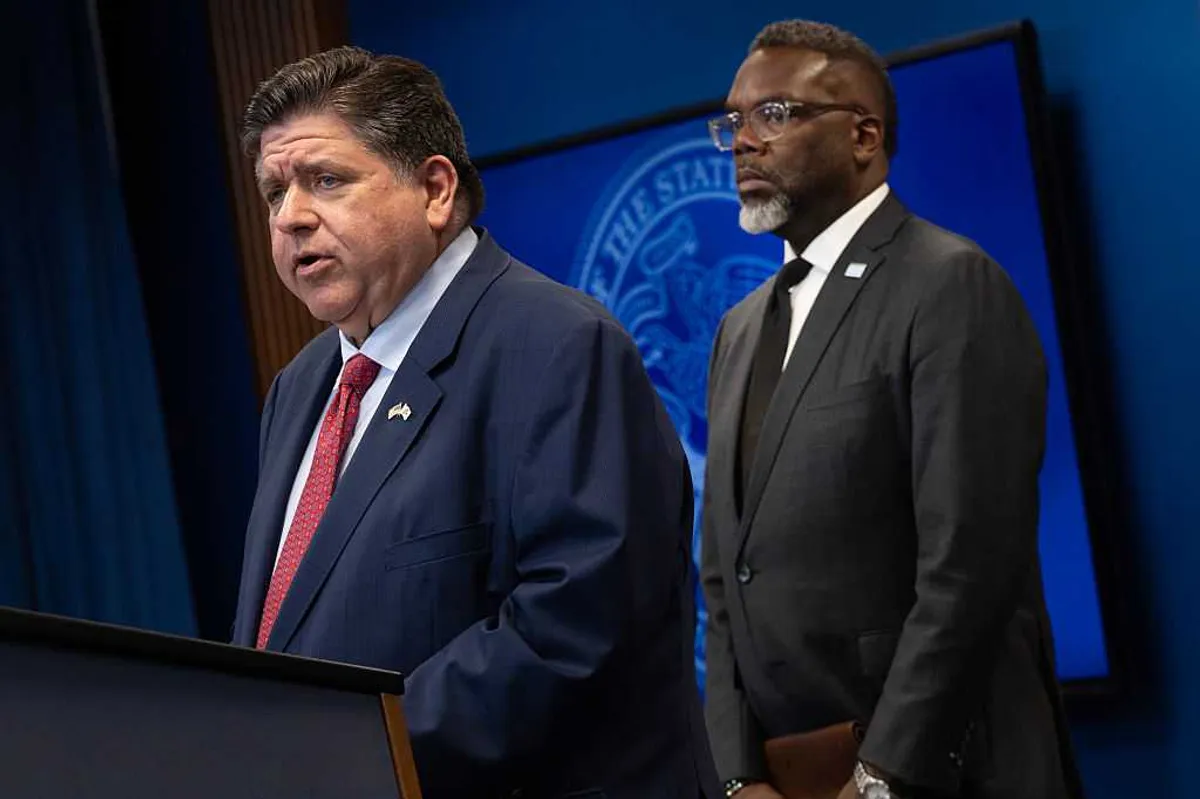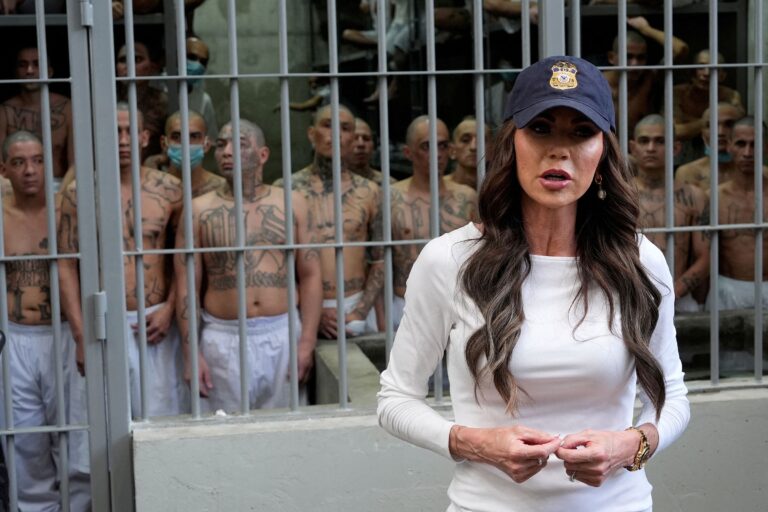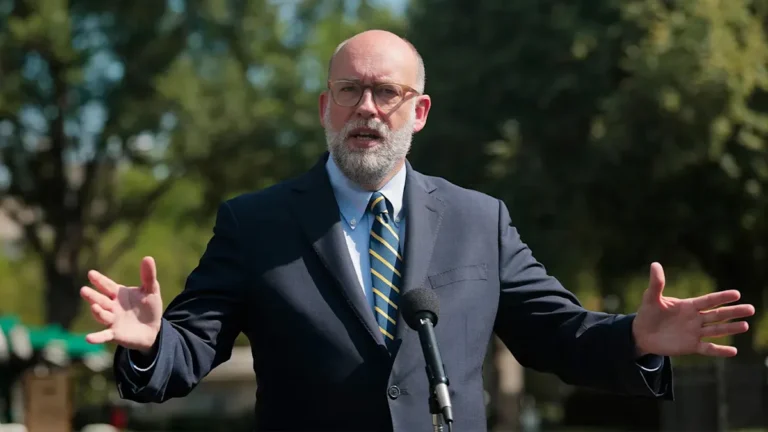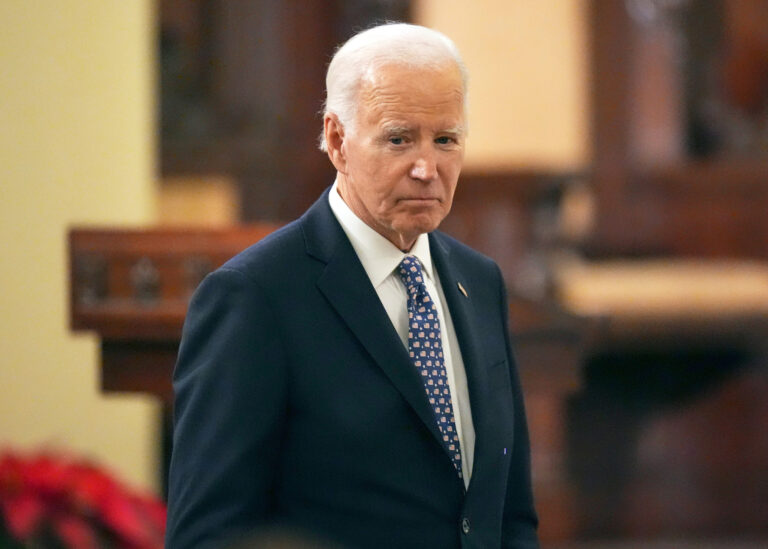Trump Justice Department Issues Stark Warning to Illinois Governor Over ICE Obstruction
Tensions Between the White House and Illinois Governor JB Pritzker
Tensions between the White House and Illinois Governor JB Pritzker have reached a boiling point following remarks from Deputy White House Chief of Staff Stephen Miller.
Miller issued a stern warning to Pritzker and other state officials, suggesting that they could face severe legal consequences — including charges of “seditious conspiracy” — if they continue to obstruct Immigration and Customs Enforcement (ICE) operations in Illinois.
The Justice Department’s warning has escalated the confrontation between federal authorities and Pritzker, who has worked to make Illinois a sanctuary state, blocking federal immigration enforcement in multiple ways.
Federal Confrontation Intensifies
The tension came to a head during a Thursday night appearance by Miller on Fox News’ America Reports, where he explicitly addressed Pritzker’s actions.
Miller made it clear that the federal government views any state or local interference with ICE’s operations as a serious criminal offense.
His comments were aimed not only at Pritzker but also at any state or local official who may attempt to prevent ICE officers from carrying out their duties.
“It doesn’t only apply to Gov. Pritzker,” Miller said. “It applies to any state official, local official, anybody operating in an official capacity who conspires or engages in activity that unlawfully impedes federal law enforcement conducting their duties.”
Miller’s words underscored that the White House considers interference with federal immigration enforcement a matter of national security, warning that individuals or officials who take part in such activities would face significant legal consequences.
Political and Legal Fallout
The warning comes amid rising animosity between President Trump’s administration and Pritzker, a Democrat who has consistently resisted federal immigration policies.
Governor Pritzker has pushed for sanctuary state policies that limit cooperation between state law enforcement and ICE — a flashpoint in the ongoing national battle over immigration, as many progressive states seek to shield undocumented immigrants from federal enforcement.
Miller’s remarks centered on the legal ramifications of obstructing ICE officers, which could include criminal charges such as obstruction of justice, harboring illegal aliens, and impeding the enforcement of federal immigration laws.
In particularly serious cases, Miller noted, the conduct could lead to charges of seditious conspiracy, a felony carrying up to 20 years in prison.
“As you get up the scale of behavior, you obviously get into seditious conspiracy charges, depending on the conduct, and many other offenses,” Miller stated.
He added that local officials who instruct their police officers to interfere with or arrest ICE officers would be engaging in criminal activity.
Federal Immunity and Consequences
Miller also emphasized that ICE officers are protected by federal immunity while carrying out their duties, meaning any attempt to physically interfere with them could result in felony charges.
“To all ICE officers, you have federal immunity in the conduct of your duties,” Miller said, warning that anyone who obstructs, harasses, or physically interferes with ICE officers would be committing a felony under federal law.
He concluded with a clear message:
“If officials cross that line into obstruction, into criminal conspiracy against the United States or against ICE officers, then they will face justice.”
Sanctuary Policies Under Fire
The warning comes amid ongoing efforts by Pritzker and other Illinois lawmakers to create a legal environment that shields undocumented immigrants from federal immigration enforcement.
Pritzker, in particular, has taken a bold stance by making Illinois a sanctuary state — signing executive orders and working with lawmakers to limit cooperation with ICE.
These actions have made him a champion for immigrant rights, but also placed him at odds with federal authorities, particularly the Trump administration.
In addition to resisting ICE operations, Pritzker recently established the Illinois Accountability Commission, designed to track and hold ICE officers accountable for what the governor describes as “unlawful actions.”
The commission will review complaints about ICE conduct and recommend measures to hold federal agents responsible for alleged misconduct — a move conservatives argue undermines federal law enforcement and sets a dangerous precedent for state interference in federal duties.
Controversial Rhetoric
Pritzker’s stance has also been marked by inflammatory rhetoric. During a recent Fox News interview, the governor compared ICE agents’ actions to those of Nazi soldiers, accusing them of targeting Black and Brown people based solely on race.
“They’re literally going after Black and Brown people because of the color of their skin,” Pritzker said.
The comparison sparked outrage, with critics accusing him of trivializing the Holocaust and using divisive language to inflame tensions.
By invoking such extreme comparisons, Pritzker made it clear that he views the federal government’s immigration policies as part of a broader attack on marginalized communities.
He defended his comments by claiming that his warning about authoritarianism is based on historical precedent:
“I’m talking about what they were doing — taking away people’s rights, arresting people, asking them for papers. Early on in an authoritarian regime, wherever it is in the world throughout history, this is what happens. It’s the beginning of something very bad for a country, especially a constitutional republic.”
The White House Responds
Miller dismissed Pritzker’s comments as “political grandstanding,” accusing the governor of using divisive rhetoric to score political points while obstructing law enforcement.
“Keep your citizens safe,” Miller urged, adding that the governor should focus on protecting the people of Illinois rather than using rhetoric to shield criminal behavior.
Miller’s remarks reflect the broader stance of the Trump administration, which maintains that sanctuary policies endanger public safety by providing cover for criminal elements.
A National Power Struggle
The dispute between DeSantis and Pritzker has drawn national attention, symbolizing a larger battle between federal authority and state sovereignty.
Pritzker and other progressive governors have made it clear that they will not comply with federal immigration directives, even if it means defying ICE enforcement.
On the other hand, the Trump administration sees these actions as a direct challenge to federal law and a threat to national security.
While the Justice Department’s warning clarified that state officials obstructing federal enforcement could face prosecution, the broader conflict between Illinois and Washington shows no sign of ending.
The Road Ahead
Pritzker’s commitment to sanctuary policies remains firm, setting the stage for continued legal battles between Illinois and the federal government.
For now, the citizens of Illinois remain caught in the middle — with some supporting Pritzker’s actions and others warning of the dangers of obstructing federal law enforcement.
Whether this confrontation will escalate into broader legal and political consequences remains to be seen, but one thing is clear:
The conflict between state and federal authority is far from over, and the stakes for both sides could not be higher.
As the legal process unfolds, it will be up to the courts to determine whether Pritzker and other state officials can continue to obstruct federal immigration enforcement without facing criminal charges.
For now, the political battle rages on — with both sides entrenched and preparing for a prolonged legal and ideological showdown.






